Saturday, 30 June 2018
Sign up for the Disrupt SF Virtual Hackathon today
Developers and creators, this is your shot to flex your technical building skills for a chance to win free passes to Disrupt SF 2018 — and maybe even $10,000! Sign up today to participate in the TechCrunch Disrupt SF 2018 virtual hackathon!
Here’s how the virtual Disrupt SF Hackathon works. Our expert judges will review, evaluate and score every eligible submitted hack. The 70 highest-scoring teams will each receive 5 Innovator passes to TechCrunch Disrupt SF 2018, where they’ll get to check out hundreds of early-stage startups in Startup and Hardware Alley, hear from several entrepreneurs, investors and innovators in a series of interviews and fireside chats and take in the illustrious Startup Battlefield competition. Plus, you’ll be able to attend all the parties and after-parties that take place during Disrupt, and keep the networking going long into the night.
Of that group, the top 30 teams will exhibit their hacks in our Hackathon Demo area at Disrupt SF to more than 10,000 attendees and another round of judging will determine the 10 teams that get to demo their creation on The Next Stage. Out of those 10, the judges will choose one winner to be our very first Virtual Hackathon Champion. And oh yeah — the winner gets the $10,000 cash prize.
Now, a Disrupt Hackathon, virtual or otherwise, wouldn’t be a hackathon without lots of sponsored prizes, cash and swag. You won’t be disappointed on that front, trust us. We have some great APIs and prizes from Visa, TomTom, HERE Mobility, BYTON and Viond on tap so far, and many more to be announced in the coming weeks.
So get those crazy ideas floating around in the backs of your heads, sign up to participate and get hacking! All hacks must be submitted by August 2!
We can’t wait to see what you all come up with.
from TechCrunch https://ift.tt/2MygL1R
Tinder bolsters its security to ward off hacks and blackmail
This week, Tinder responded to a letter from Oregon Senator Ron Wyden calling for the company to seal up security loopholes in its app that could lead to blackmail and other privacy incursions.
In a letter to Sen. Wyden, Match Group General Counsel Jared Sine describes recent changes to the app, noting that as of June 19, “swipe data has been padded such that all actions are now the same size.” Sine added that images on the mobile app are fully encrypted as of February 6, while images on the web version of Tinder were already encrypted.
The Tinder issues were first called out in a report by a research team at Checkmarx describing the app’s “disturbing vulnerabilities” and their propensity for blackmail:
The vulnerabilities, found in both the app’s Android and iOS versions, allow an attacker using the same network as the user to monitor the user’s every move on the app. It is also possible for an attacker to take control over the profile pictures the user sees, swapping them for inappropriate content, rogue advertising or other type of malicious content (as demonstrated in the research).
While no credential theft and no immediate financial impact are involved in this process, an attacker targeting a vulnerable user can blackmail the victim, threatening to expose highly private information from the user’s Tinder profile and actions in the app.
In February, Wyden called for Tinder to address the vulnerability by encrypting all data that moves between its servers and the app and by padding data to obscure it from hackers. In a statement to TechCrunch at the time, Tinder indicated that it heard Sen. Wyden’s concerns and had recently implemented encryption for profile photos in the interest of moving toward deepening its privacy practices.
“Like every technology company, we are constantly working to improve our defenses in the battle against malicious hackers and cyber criminals,” Sine said in the letter. “… Our goal is to have protocols and systems that not only meet, but exceed industry best practices.”
from TechCrunch https://ift.tt/2Nb5J3H
A robotic astronaut named CIMON is on its way to the ISS
There’s a new astronaut on its way to the International Space Station this morning aboard SpaceX’s most recent resupply launch, and it’s only the size of a medicine ball. CIMON (Crew Interactive Mobile Companion) is an artificial intelligence assistant designed by Airbus and IBM to assist the European Space Agency’s astronauts in everyday tasks aboard the ISS. Weighing in at just 11 pounds and roughly the size of a medicine ball, this minute astronaut is equipped with the neural network strength of IBM’s Watson.
Crew members will be able to correspond with CIMON via voice commands and access a database of procedures. CIMON will also be able to detect the crew members’ moods and react accordingly, Till Eisenberg, CIMON project lead at Airbus, told SPACE.com.
In a February press release announcing CIMON’s arrival, Airbus said that CIMON’s emotional intelligence, in addition to its friendly face and voice, will help it operate like a true crew member aboard the station. To start, CIMON even has a built-in friend.
Before setting off today, CIMON has been trained alongside German astronaut Alexander Gerst to recognize Gerst’s voice and face and help him complete three different tasks while aboard the ISS. CIMON will help the geophysicist and volcanologist study crystals on the space station, solve a Rubik’s cube using video data and play the role of an “intelligent camera” to document a medical experiment on-board.
CIMON’s mission with Gerst will take place between this June and October 2018, but Airbus hopes that in the future CIMON will be able to observe crew members on longer missions and help scientists learn more about the social dynamics involved in extended space flight — an issue that will be paramount for any dreams of Martian colonies to come.
from TechCrunch https://ift.tt/2Kmy2yk
YouTube’s picture-in-picture mode is live for all US Android users
YouTube has confirmed that picture-in-picture mode — previously a paid-only feature — has now rolled out to all U.S. YouTube users on Android on supported devices. The feature, which works on Android 8.0 (Oreo) or higher, had been slowly rolling out to non-Premium subscribers since this April we understand, and the full rollout completed on Monday.
The website XDA Developers was the first to spot the expansion, noting earlier this week that it seemed as if picture-in-picture mode had suddenly been turned on for several more YouTube users. They suspected that this had been a gradual launch, but didn’t confirm the status with YouTube directly.
Picture-in-picture mode, as you likely understand by its name, allows you to continue watching a video in a small window as you continue to browse YouTube, or even use other apps.

It’s an especially helpful addition to the service, but had only been offered to YouTube Premium (previously known as YouTube Red) customers following its launch last year.
The feature is an improvement over the current system of watching while browsing on iOS, as well, which instead places a floating strip at the bottom of the app where the video plays in a very small thumbnail. YouTube has not announced its plans for a related iOS update. But it would not be able to work in the same way in terms of placing a floating widget that hovers over top of the home screen or other apps — that’s something only Android users can do.

from TechCrunch https://ift.tt/2IDuPoG
These 50 founders and VCs suggest 2018 may be a tipping point for women: Part 1
For the last several years, we’ve compiled profiles of women founders and investors at the end of each year because they’ve either raised substantial amounts of money or otherwise achieved notable milestones.
This year, we don’t want to wait until December. We’re too excited about the progress we’re witnessing, with women-led startups getting seed, Series A or later-stage funding each week — all while top venture firms grow more serious about pulling women into their most senior ranks, female VCs band together to fund female founders and other women go about launching their own funds.
Some of you will note that this list is far from comprehensive, and we’ll readily agree with you. But we think it’s better to celebrate the accomplishments of some of the women who deserve attention than try to capture every last person we’d include if only there were more hours in the day.
Herewith, a list of 25 founders and investors who’ve had a pretty good 2018 so far, with a second list of women in the industry coming shortly, so stay tuned.
Brynn Putnam, founder and CEO of Mirror

Harvard grad Brynn Putnam was once a professional ballet dancer, but she may eventually find more fame as a serial founder. Two years after her last performance in 2008 with a ballet company in Montreal, Putnam started a New York-boutique fitness studio, Refine Method, around a high-intensity, interval workout. It would later sprout into three studios in New York and attract the likes of Kelly Ripa and Ivana Trump.
Now, Putnam is using its founding principal — that gym users can wring more from their workout hours — to build yet another business called Mirror. Centered around an at-home device, it looks like a mirror but enables users to see an instructor and classmates for fitness routines like Pilates, all while tracking their performance on screen. Mirror isn’t available to buy yet, but investors are already sold, providing the company with $13 million in funding earlier this year so it can bring its product to fitness buffs everywhere.
Ritu Narayan, co-founder and CEO of Zūm

Ritu Narayan led product management at stalwart tech companies, including Yahoo and eBay, but her biggest challenge eventually became how to ensure that her kids got to where they needed to go during her working hours. She knew she wasn’t alone; there are roughly 73 million children under age 18 in the U.S., many of whom are driven around by frenzied parents who are trying to make it through each day.
Enter Zūm, a now 3.5-year-old company that promises reliable transportation and care for children ages five and older. Zūm isn’t the first kind of Uber for kids. In fact, another competitor, Shuddle, shuttered in 2016 after burning through more than $12 million in funding. But Narayan’s company appears to be doing something right. Earlier this year, Zūm raised $19 million in Series B funding, including from earlier backer Sequoia Capital, which is famously metric driven.
The company has now raised $26.8 million altogether.
Daniela Perdomo, co-founder and CEO, goTenna

When Hurricane Sandy cut off power in and around New York City in the fall of 2012, Daniela Perdomo and her brother, Jorge, were struck by the need for a network that would enable people to call or text even when there’s no Wi-Fi or cell signal. Today, that company, goTenna, is taking off, powered by an early device it created that pairs with a cell phone via Bluetooth to transmit messages using radio frequencies, along with a newer version of the device that allows them to create a kind of mesh network.
To date, the company has sold more than 100,000 units of its devices. It has raised roughly $17 million from VCs. In May, the company also partnered with an outfit called Samourai Wallet to launch an Android app that, beginning this summer, will enable users to send bitcoin payments without an internet connection. The move could prove crucial for some of its customers, particularly in disaster areas.
Chloe Alpert, CEO and co-founder of Medinas Health
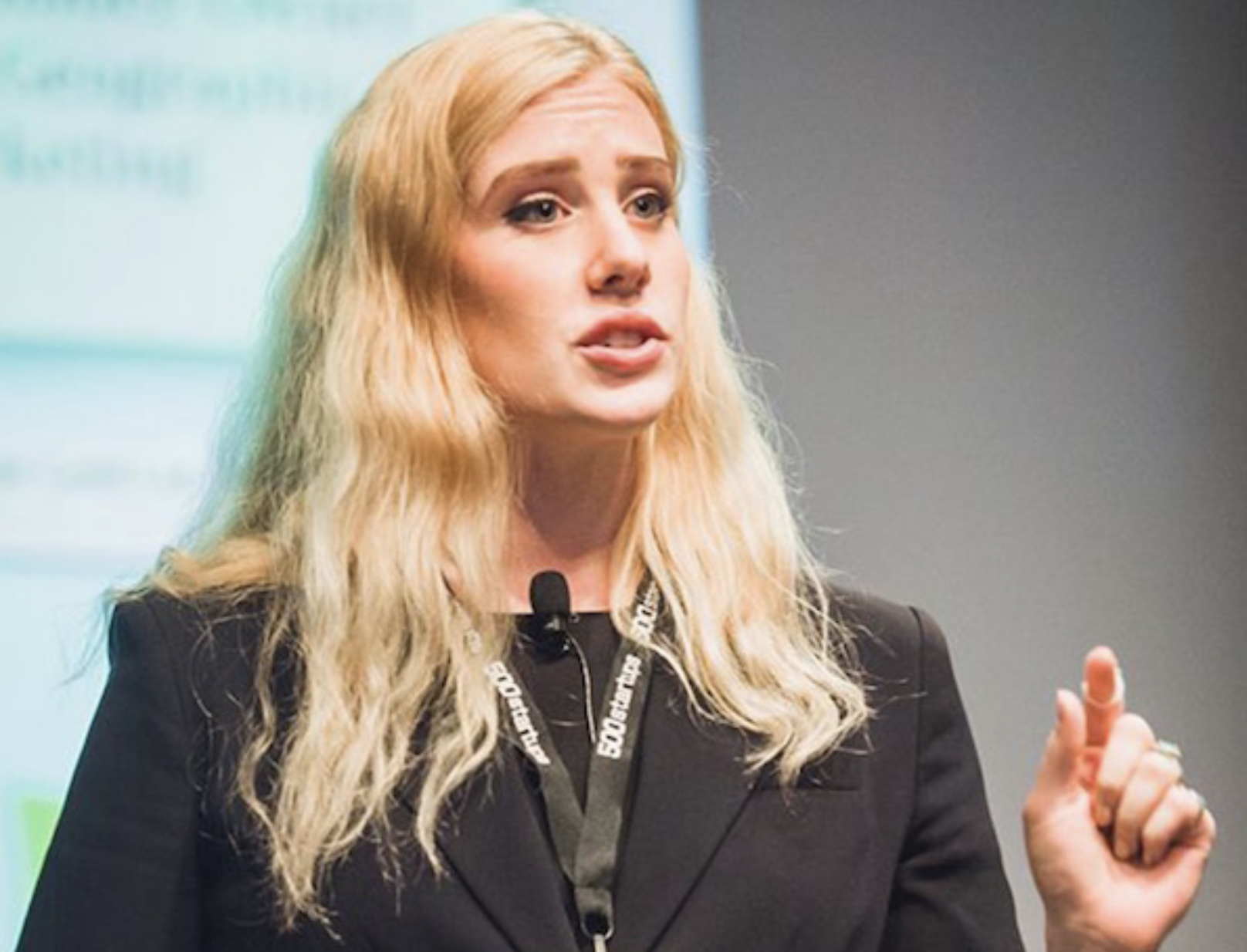
Hundreds of billions of dollars’ worth of surplus medical supplies are discarded every year, according to Chloe Alpert, the founder of Medinas Health, a Berkeley, Calif.-based startup that uses inventory data and matching software to help big hospitals sell excess equipment to small clinics and nursing homes.
Alpert thinks Medinas can create cost savings for both sides by creating something that’s fast and trustworthy and working with third parties who can disassemble, ship and re-assemble medical equipment.
Investors believe her surplus marketplace has a shot. Her 10-month-old company raised $1 million in funding earlier this year, including from Sound Ventures, Rough Draft Ventures, Precursor Ventures and Trammell Ventures.
Phaedra Ellis-Lamkins, co-founder of Promise
 Phaedra Ellis-Lamkins was raised by a single mom who occasionally fed her two daughters with food stamps before a union job enabled the three to escape welfare. But that formative experience made a lasting impact. In fact, after graduating from college, Ellis-Lamkins worked for a union that helped organize low-wage home care. By the time she was 26, she was head of the San Jose-based South Bay Labor Council.
Phaedra Ellis-Lamkins was raised by a single mom who occasionally fed her two daughters with food stamps before a union job enabled the three to escape welfare. But that formative experience made a lasting impact. In fact, after graduating from college, Ellis-Lamkins worked for a union that helped organize low-wage home care. By the time she was 26, she was head of the San Jose-based South Bay Labor Council.
Ellis-Lamkins is far from done in her work to ensure that the disadvantaged can prosper. Her newest project: working in partnership with governments that release people from jail on condition that they work with her company, Promise. The big idea: Promise provides support to people caught in the criminal justice system to ensure they can return to their jobs and families until their case in resolved, rather than remain incarcerated because they can’t afford bail. The latter scenario happens all too often, agree VCs. Toward that end, earlier this year a handful of investors — including First Round Capital, Jay-Z’s Roc Nation, 8VC and Kapor Capital — provided Promise with $3 million to help put an end to it.
Jesse Genet, founder and CEO of Lumi

In 2014, Jesse Genet was trying to convince a panel of investors on “Shark Tank” to write her a $250,000 check for five percent of her company, which, at the time, sold photo printing kits online. Genet left empty-handed, but she didn’t give up, instead turning her company, Lumi, into a business that designs and supplies beautiful packaging for many top e-commerce companies that sell directly to consumers. It also landed $9 million in funding earlier this year led by Spark Capital, with participation from Forerunner Ventures and earlier investor Homebrew.
It’s been a process, but Genet seems to have anticipated it would be, telling Business Insider back in 2015, “One key thing is not to rush your own business . . . Even if you’re not making a ton of money, that experience of just living the company day-in and day-out, getting that feedback and experience, is something you can never replace.”
Sarah Guo, general partner, Greylock Partners

Sarah Guo didn’t necessarily set out to become a venture capitalist. She certainly didn’t imagine she would become one of the most senior investors at one of the oldest venture firms in the country. Yet Guo is both of these things, having been promoted last month to general partner at 53-year-old Greylock Partners five years after joining the firm as a principal.
For Guo, the appointment caps a lifetime spent in the world of startups. Before joining Greylock, she worked as an analyst at Goldman Sachs, where she led much of the bank’s coverage of business-to-business tech companies and advised public clients, including Twitter, Netflix, Zynga and Nvidia.
A graduate (for both her undergraduate degree and MBA) of the University of Pennsylvania, Guo also worked previously at Casa Systems, a 15-year-old tech company that develops a software-centric networking platform for cable and mobile service providers and that — in a twist that we think is pretty neat — was founded by her parents.
Charlotte Fudge, founder and CEO of CentralReach
 CentralReach builds practice management software for the developmental disabilities sector, with a focus on both research and practice. It isn’t the kind of company to make headlines, but the five-year-old, Pompano Beach, Fla., company managed to attract the attention of powerhouse firm Insight Venture Partners. Insight invested an undisclosed amount of funding in the company earlier this year, some of which CentralReach has already used to acquire Chartlytics, a behavioral change analytics software startup.
CentralReach builds practice management software for the developmental disabilities sector, with a focus on both research and practice. It isn’t the kind of company to make headlines, but the five-year-old, Pompano Beach, Fla., company managed to attract the attention of powerhouse firm Insight Venture Partners. Insight invested an undisclosed amount of funding in the company earlier this year, some of which CentralReach has already used to acquire Chartlytics, a behavioral change analytics software startup.
For Charlotte Fudge — a registered nurse who founded CentralReach and continues to lead it as its CEO — the developments have to be exciting. She has spent her career focused on people with autism and related disabilities; having the deep-pocketed support of an investor will presumably help her company reach more people than ever.
Emily Weiss, founder and CEO of Glossier
 Emily Weiss has been called the “millennials’ Estée Lauder.” It didn’t take long for her to get there, either. Indeed, a little more than three years ago, Weiss was still overseeing highly popular blog Into the Gloss when an early meeting with Kirsten Green of Forerunner Ventures helped move Weiss in a new direction: that of selling beauty products that cost a fraction of what some traditional brands charge and are pared back in every other way, too.
Emily Weiss has been called the “millennials’ Estée Lauder.” It didn’t take long for her to get there, either. Indeed, a little more than three years ago, Weiss was still overseeing highly popular blog Into the Gloss when an early meeting with Kirsten Green of Forerunner Ventures helped move Weiss in a new direction: that of selling beauty products that cost a fraction of what some traditional brands charge and are pared back in every other way, too.
Customers are fanatical about the company, whose Instagram counts 1.2 million followers and counting. Investors love the company’s look, too. In February, Glossier closed on $52 million in Series C funding in a round that it characterized as oversubscribed. The company has now raised $86 million altogether.
Anne Boden, founder and CEO of Starling Bank

There are powerful women in banking; there are powerful women in tech. Anne Boden is among a small but growing number of powerful women who are straddling both worlds, and her influence seems to grow by the month. The former COO of Allied Irish Banks and a former top executive at RBS and ABN AMRO before that, Boden is now founder and CEO of Starling Bank, a digital-only outfit that does its lending via smartphones, gained its U.K. banking license in 2016 and has big ambitions to expand across much of Europe.
Indeed, as rival challenger bank Revolut eyes the U.S., Starling — which has already raised a reported £48 million by hedge fund manager Harald McPike — is currently looking to raise another £80 million in fresh capital in an investor search that could potentially extend beyond the U.K. The company also quietly blew up a partnership with the fintech unicorn TransferWise, which it had partnered with last year to provide international payments capabilities. As Boden told TechCrunch last month of the move, Starling figured it “could provide a better user experience by doing it ourselves.”
Shruti Merchant, co-founder and CEO of HubHaus

When Shruti Merchant dropped out of a med school program in Concord, Calif., to move 40 miles away to San Francisco, she didn’t know anyone, so she and six other people who discovered each other on Craigslist rented a big house together and . . . they became great friends in the process. Merchant was already trying her hand at entrepreneurship, but the experience made her think a bigger idea might center on managing such co-living situations, so she co-founded HubHaus to do exactly that.
So far, so good, it seems. HubHaus, which rents out large houses and subleases out bedrooms, creating housing communities in the process, now oversees dozens of properties in L.A. and San Francisco. It also raised $10 million in Series A funding earlier this year, led by Social Capital.
Kathy Hannun, co-founder and CEO of Dandelion
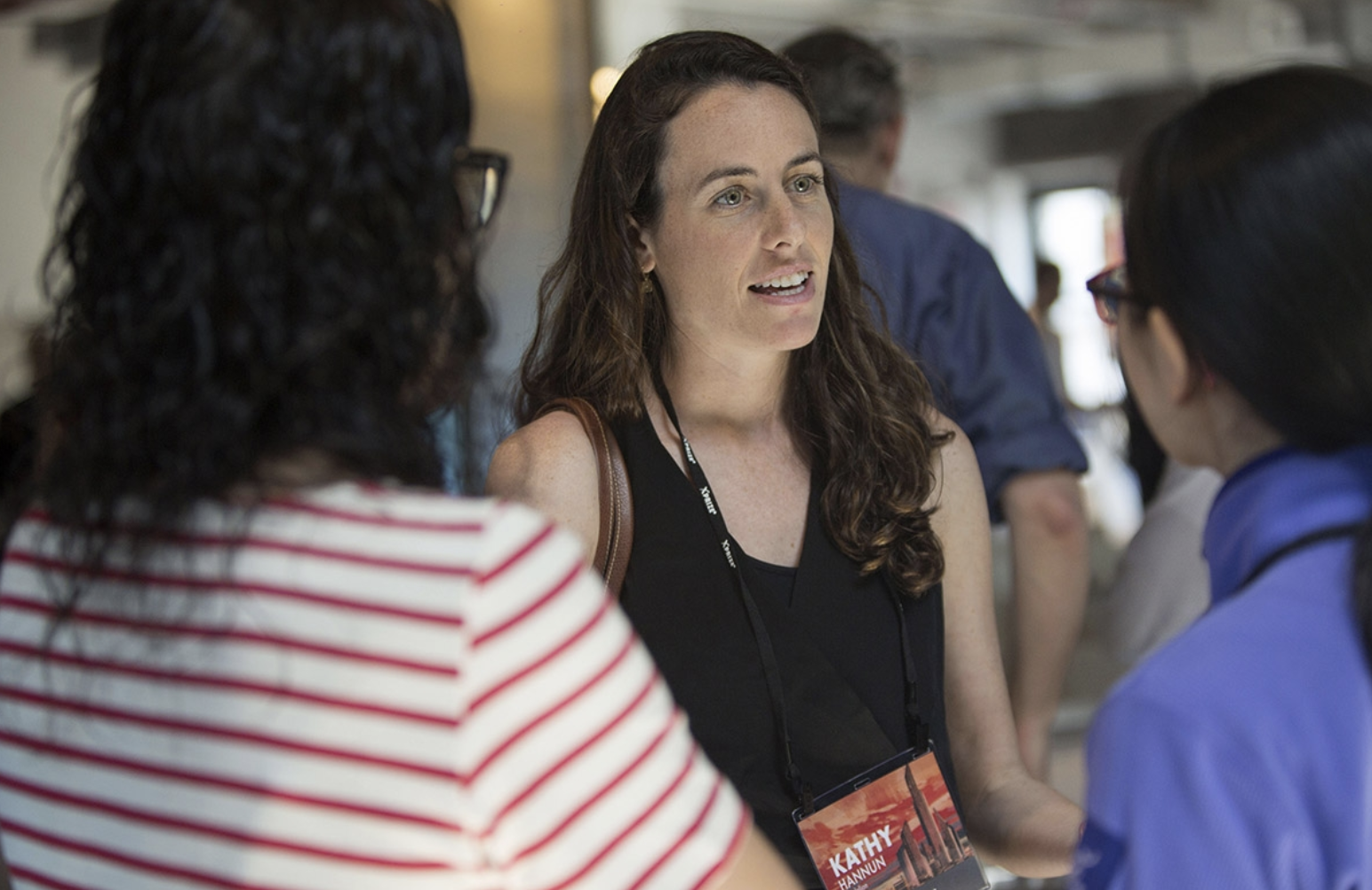
Nearly straight out of college, Kathy Hannun was brought onto the evaluation team of Alphabet’s X group, which is responsible for coming up with the next “moonshots” for the company. Eventually, she and several colleagues spied an opportunity too good not to pursue independently. The end result: Dandelion Energy, which says it makes “geothermal heating and air conditioning so efficient, it pays for itself.”
Investors certainly don’t mind relying on Dandelion. New Enterprise Associates, BoxGroup and others provided the year-old, Brooklyn-based company with $4.5 million in fresh funding earlier this year, bringing its total funding to $6.5 million to date. The day after the new round closed, Hannun had a baby.
Ran Ma, co-founder and CEO of Siren
 Ran Ma spent years as a biomedical engineer at Northwestern University and, before that, as research assistant at Johns Hopkins Hospital, working in nephrology, including as it relates to kidney disease. In those roles, Ma learned plenty, including that kidney disease impacts up to 40 percent of diabetics, and that diabetes afflicts roughly 400 million people — a giant percentage of whom are unable to feel pain from ulcers and gangrene, which can lead to amputations.
Ran Ma spent years as a biomedical engineer at Northwestern University and, before that, as research assistant at Johns Hopkins Hospital, working in nephrology, including as it relates to kidney disease. In those roles, Ma learned plenty, including that kidney disease impacts up to 40 percent of diabetics, and that diabetes afflicts roughly 400 million people — a giant percentage of whom are unable to feel pain from ulcers and gangrene, which can lead to amputations.
It’s those kinds of stats that compelled her to start Siren, a three-year-old, Copenhagen- and San Francisco-based company that’s making textile products that empower their wearers, starting with machine-washable and dryer-proof socks that can measure a wearer’s foot temperature to show him or her what’s going on through a connected app. (A heat spot, for example, can signal a burgeoning infection.) Investors certainly like Ma’s approach to helping diabetics detect potential injuries before they become debilitating. They provided the company with $3.4 million in funding earlier this year. Among those footing the bill: DCM, Khosla Ventures and Founders Fund.
Nicki Ramsay, founder and CEO of CardUp
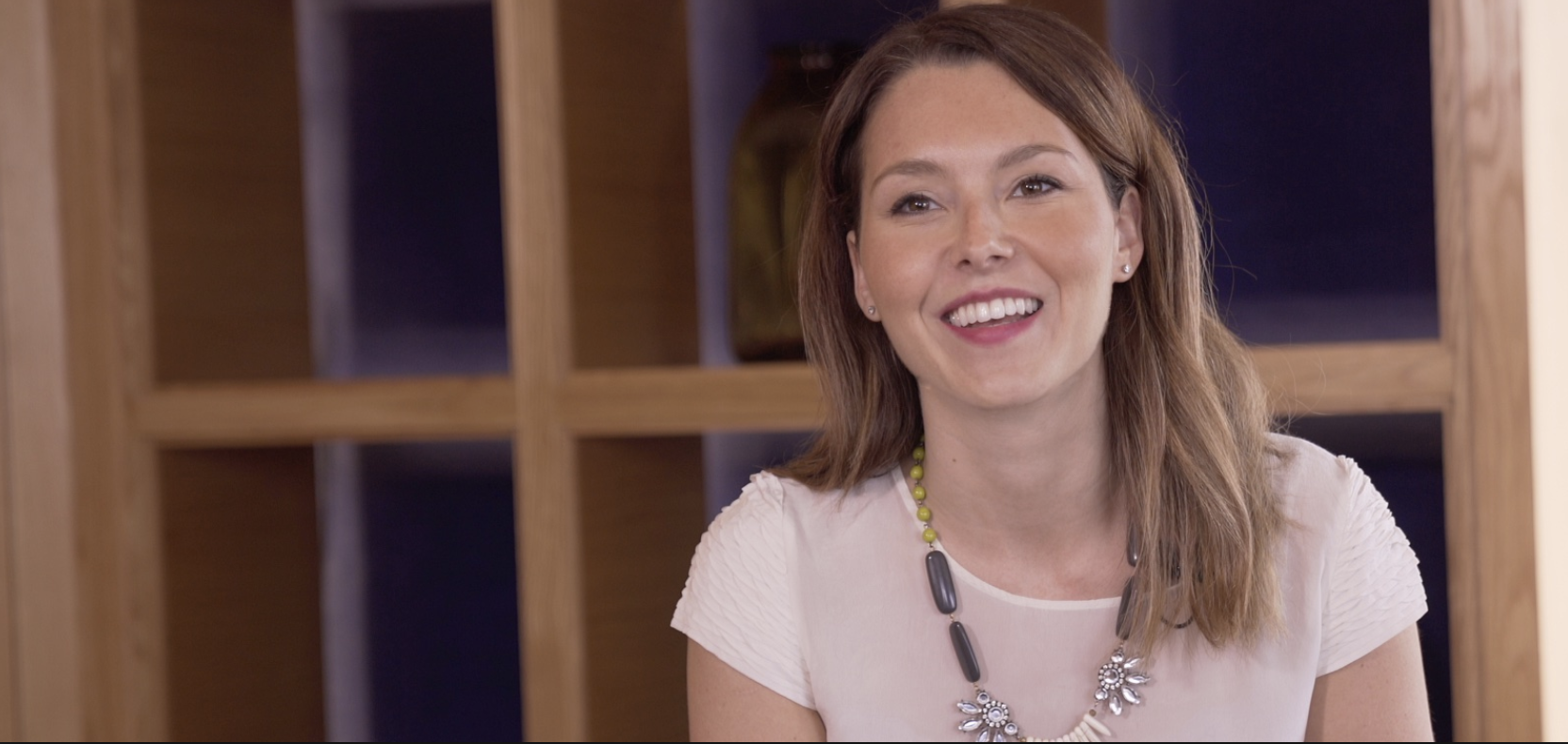
After spending roughly eight years with American Express in a variety of roles, Nicki Ramsay spied an unmet need. Specifically, AmEx customers couldn’t use their credit cards to pay for rent or taxes, among other things. Her solution: CardUp, a company that enables users to set up recurring payments to use their credit cards, from Citi, Visa, MasterCard and elsewhere, to pay for everything from rent to car loans to insurance to — in the case of small business owners — employees’ salaries, all while earning rewards. (Why just pay your rent, when you can pay your rent and get 70,000 air miles in the process?)
Investors clearly like the idea of providing incentives to users willing to use their credit cards as a financing tool. In March, Sequoia India and the seed-stage venture firm SeedPlus gave Singapore-based CardUp $1.7 million in seed funding, money it is using to grow its staff, as well as market itself to a growing number of small- and medium-size businesses.
Gwyneth Paltrow, founder and CEO of Goop
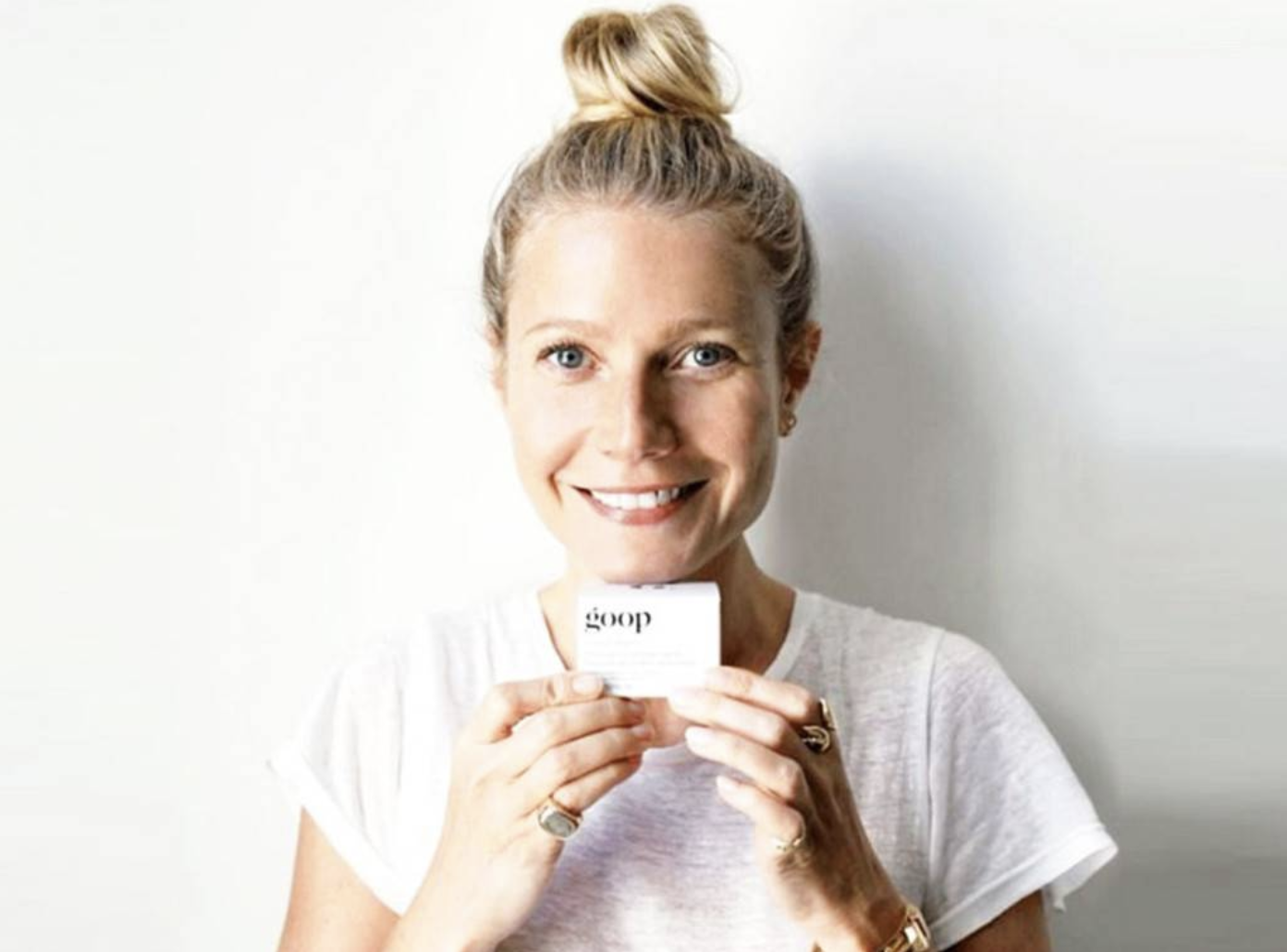
Goop, the wellness newsletter-turned-media and e-commerce company founded a decade ago by actress Gwyneth Paltrow, gets plenty of grief for its highly unscientific advice around vaginal steaming and the dangers of bras. Perhaps most famously, it has marketed jade eggs to its followers, suggesting that they put them in their vaginas to cultivate their sexual energy.
While funny to a great many people, Paltrow may get the last laugh. In March, her 150-person company raised $50 million in Series C funding from new and earlier backers, including New Enterprise Associates, Lightspeed Venture Partners and Fidelity, money that Goop intends to use to expand internationally, including through experiential retail, “image events” and through good-old-fashioned marketing.
Naomi Hirabayashi and Marah Lidey, co-founders of Shine

While Naomi Hirabayashi and Marah Lidey worked together at a nonprofit in New York, they formed their own personal support system with each other and close friends; they wanted to create something like it for others, too. There were already plenty of self-care apps, but none reflected their experience as women of color. As Hirabayashi told TechCrunch earlier this year, “We saw there was something missing in the market because well-being companies didn’t really reach us — they didn’t speak to us. We didn’t see people that looked like us. We didn’t feel like the way they shared content sounded like how we spoke about the different well-being issues in our lives.”
The product they settled on would become Shine, a startup that sends users a daily text with actionable tips around confidence, daily happiness, mental health and productivity to help them get through the day. Investors are feeling good about Shine, too, seemingly. Two years after raising seed capital, the company nabbed $5 million in Series A funding in April led by earlier backer Comcast Ventures, with participation from numerous other outfits, including The New York Times.
Ankiti Bose, co-founder and CEO of Zilingo

Ankiti Bose is the rare female founder in Asia’s startup scene, but that fact doesn’t seem to be slowing down her company in any way. Rather, Zilingo, an e-commerce startup that recreates online the experience of visiting Southeast Asia’s bazaars, raised $54 million in fresh funding in an April round that brings the company’s total funding to $82 million.
Why are investors so enthusiastic? Bose’s background — she worked both as a McKinsey analyst in Mumbai and later an as investment analyst for Sequoia Capital in Bangalore — certainly helps. But so does the market she is chasing. By providing a way for independent merchants to operate online storefronts, Zilingo is managing to compete effectively against the likes of Amazon in what’s expected to be an $88 billion market by 2025.
Aditi Avasthi, founder and CEO of Embibe

Five years ago, Aditi Avasthi decided to apply what she’d learned about economics at the University of Chicago and two years at Barclays to help students in her home country of India. The result was Embibe, a Bengarulu, India-based online coaching startup that tries to address not only access but also under-performance by taking a forensic approach to everything a student does online and trying to reach them when and where they most need help. The idea is to deliver far more accurate feedback — while simultaneously having to rely on fewer teachers.
Avasthi must be on to something. Earlier this year, the Indian conglomerate Reliance paid out $180 million to the company in exchange for a 73 percent stake in the business, a part of which came from Embibe’e earlier investors. It was a big win for these backers, Kalaari Capital and Lightbox, which appear to have provided Embibe with just $4 million in backing. Of course, it’s none too shabby a development for first-time founder Avasthi, either.
Katie Haun, general partner at Andreessen Horowitz
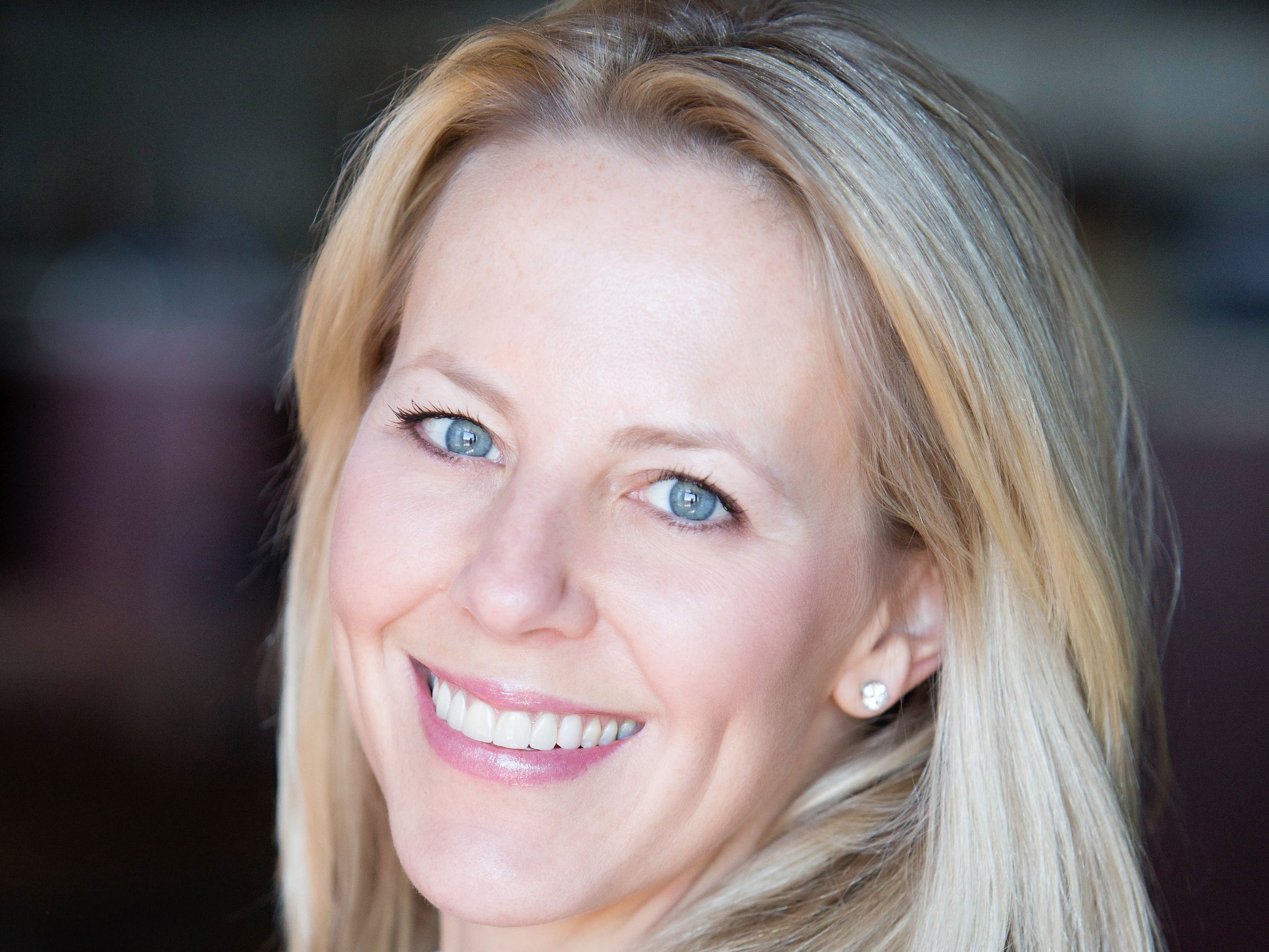
Earlier this week, nine-year-old Andreessen Horowitz (a16z) announced its first female general partner: Katie Haun, whose star has quietly been rising in the Bay Area over for the past couple of years. Haun, who is leading Andreessen’s new $300 million crypto fund with general partner Chris Dixon, is kind of a big deal, so it’s no surprise that a16z nabbed her.
Among her other many accomplishments, Haun spent more than a decade as a federal prosecutor with the U.S. Department of Justice, where she focused on fraud, cybercrime and corporate compliance no-nos alongside the SEC, FBI and Treasury. According to Haun’s bio, she also was the DOJ’s first-ever coordinator for digital assets, and she led investigations into the Mt. Gox hack and the task force that investigated and ultimately took down the online drug marketplace Silk Road. Haun is also a lecturer at Stanford Business School and she’s a director on the board of the digital exchange Coinbase, which was backed early on by a16z.
Sara Mauskopf and Anne Halsall, co-founders of Winnie
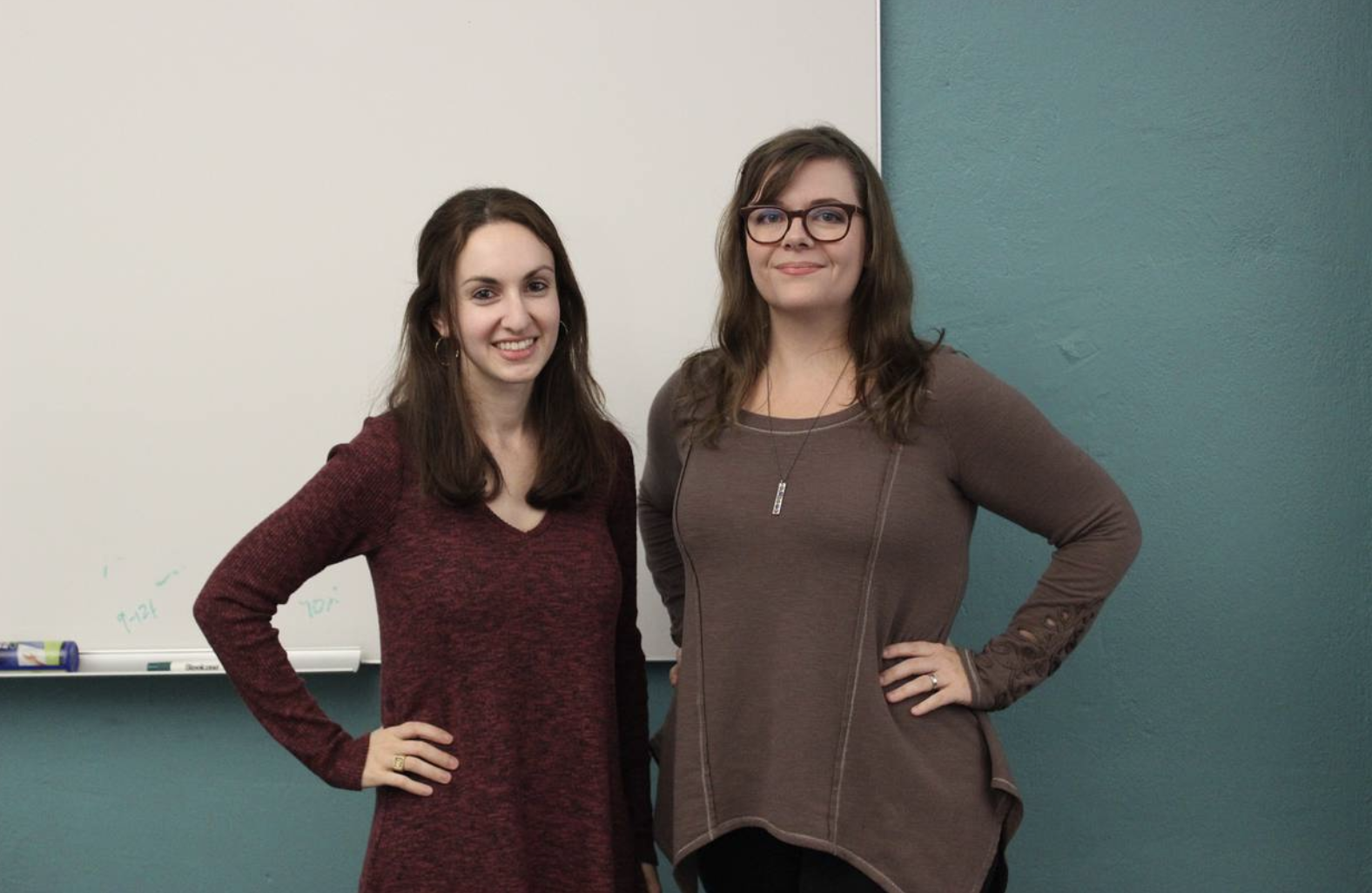
Sara Mauskopf and Anne Halsall know how to build products. Mauskopf spent most of the last decade working on products at Twitter, Postmates, YouTube and Google, while Halsall was doing much the same at Postmates, Quora and Google. No wonder that when the two came together to create Winnie — a mobile app that offers parents information about nearby kid-friendly places, what sort of facilities for families a location may have and, more recently, an online community where parents can ask questions and participate in discussions — investors took notice, investing $2.25 million in the company two years ago.
They haven’t lost interest. Instead, the now two-and-a-half-year-old app, which has reportedly surpassed one million users, just locked down a fresh $4 million in seed funding earlier this week, led by Reach Capital. Winnie has now raised $6.5 million altogether.
Falon Fatemi, founder and CEO of Node

Falon Fatemi used to take pride in becoming Google’s youngest employee at age 19. But after logging four years with the search giant and another two years at YouTube, Fatemi is making her mark by building her four-year-old startup, Node, into an ever-growing operation.
Just in April, the company — which makes an AI-driven search tool that helps people understand who in their professional network can be the most helpful at any one point in time and why — raised $5 million in fresh funding from Recruit Strategic Partners and Jeffrey Katzenberg’s WndrCo. The round brings Node’s total funding to $21 million altogether.
Renee Wang, founder and CEO of Castbox

Renee Wang was born in China and reportedly attended a boarding school in the rural countryside outside Beijing, tutoring her fellow students — while also teaching herself to code. Indeed, after graduating from Peking University with a double major, Wang found herself at Google, where she worked for the company in Tokyo for more than four years. It was there, from inside the search giant’s operations, that she could see spikes in user searches for podcast content and decided there was room for an app to dominate the space.
Enter Castbox, an app that uses natural language processing and machine learning techniques to power some of its unique features, like personalized recommendations and in-audio search. The app is also capable of suggesting what to listen to next based on users’ prior listening behavior, and its in-audio search feature actually transcribes, indexes and makes searchable the audio content inside podcasts. With so much going on, it’s no wonder investors are listening. In April, they gave Castbox $13.5 million in Series B funding. Altogether, it has raised $29.5 million.
Laura Deming, partner of Longevity Fund

Photo: Maarten de Boer/Getty Images
Twenty-four-year-old Laura Deming is younger than most of her venture capital peers, but she’s taken seriously nonetheless — and it’s no wonder. The New Zealand native was home-schooled, developing along the way a fascination with the biology of aging. In fact, before she was even a teenager, she found herself working in the lab of Cynthia Kenyon, a renowned molecular biologist who specializes in the genetics of aging. By the time she was 14, Deming was a student at MIT, and by age 16, she was a college-drop out, having been accepted into Peter Thiel’s two-year-old Thiel Fellowship program, which gives $100,000 to young people “who want to build new things.”
Build things, she has done. Last year, Deming closed her second venture capital fund with $22 million. Earlier this year, Deming took the wraps off an accelerator program, too, one with backing from famed investor Marc Andreessen, the early-stage venture firm Felicis Ventures, and other, unnamed investors. The idea is to help startups, especially those focused on late-onset medical conditions get to a significant “value inflection point” within four months, which is how long the program runs.
from TechCrunch https://ift.tt/2lFVbND
Amazon’s Echo Dot Kids Edition adds support for Spotify
Amazon is addressing one of the larger issues with its Echo Dot Kids Edition — support for Spotify’s streaming music service, with the option to filter out explicit lyrics. The news was announced on Friday alongside new content from Disney for the Kids Edition device. However, Amazon says the Spotify support would not be available until next week.
Lack of access to one of the most popular streaming services was one of my personal critiques with the Kids Edition. As a Spotify household, it was hard to use the device here because of its limited support for music services outside Amazon and iHeartRadio Family. Our favorite playlists and music was not available, because we don’t pay for Amazon’s on-demand music service. This will be a welcome change.
When Spotify is enabled, Amazon says the explicit filter will also be turned on by default — but parents can turn it off on their FreeTime dashboard.
Along with the support on the Kids Edition device, the update will also now allow Spotify customers who don’t subscribe to FreeTime the option to turn off explicit lyrics, as they already can do with Amazon Music and Pandora.
In addition, Amazon says the Echo Dot Kids Edition is gaining a host of new content from Disney this week and next.
It has already added a new kids skill called Disney Dailies that includes jokes and sketches taking place in the “Zootopia” world, which are updated every day.
Next week, there also will be new character alarms featuring characters from Pixar’s “Coco,” Disney’s “Moana” and others. And Disney has updated its Daily Stories with stories from “Incredibles 2,” “Doc McStuffins,” “Wall-E,” “Moana” and more.
The Kids Edition is a combo package of an Echo Dot with a protective case and a year of FreeTime Unlimited, which includes exclusive Alexa skills for Kids Edition owners, as well as other content, like games, apps, books and videos. It’s $79.99 on Amazon.
from TechCrunch https://ift.tt/2MwCOGm
Electric scooter startup Spin is finalizing a $125 million security token offering
Spin, an electric scooter startup, is raising around $125 million via a blockchain-based security token offering (STO), Axios first reported and TechCrunch has independently learned. Spin, which declined to comment for this story, has previously raised just $8 million.
The idea with Spin’s security token offering is to raise money from accredited investors, who will then be entitled to a portion of the revenue from Spin’s electric scooter operations, according to a source close to Spin. Last year, initial coin offerings were the hot thing in the cryptocurrency space. Now, STOs are starting to emerge, given that they provide more security for potential investors. With STOs, investors can buy tokens that are linked to real-world financial instruments. In the case of Spin’s offering, the tokens are linked to its revenue.
Spin has been one of the more quiet scooter startups in the industry after announcing its expansion into scooters in February. This comes shortly after electric scooter startup Bird raised a $300 million round led by Sequoia Capital, and after reports of Lime raising $250 million led by GV.
Spin currently has a contract with electric scooter manufacturer Ninebot to purchase 30,000 scooters a month through the end of this year, according to a source. Bird, on the other hand, said in May it inked an exclusive deal with Ninebot for rights to the company’s supply of scooters. Clearly, that’s not true.
Spin had previously only operated a bike-share platform. Last August, Spin brought its stationless bike-share program to South San Francisco after launching in Seattle earlier that year. Then, in January, Spin unveiled its stationless electric bike. However, Spin is now solely focused on electric scooters, according to a source close to Spin.
Meanwhile, Spin and other electric scooter operators are currently awaiting word from the city of San Francisco regarding whether or not they can deploy their respective scooters in the city.
from TechCrunch https://ift.tt/2KvTwbE
Thousands of cryptocurrency projects are already dead
Two sites that are actively cataloging failed crypto projects, Coinopsy and DeadCoins, have found that over a 1,000 projects have failed so far in 2018. The projects range from true abandonware to outright scams, and include BRIG, a scam by two “brothers,” Jack and Jay Brig, and Titanium, a project that ended in an SEC investigation.
Obviously any new set of institutions must create their own sets of rules and that is exactly what is happening in the blockchain world. But when faced with the potential for massive token fundraising, bigger problems arise. While everyone expects startups to fail, the sheer amount of cash flooding these projects is a big problem. When a startup has too much fuel too quickly the resulting conflagration ends up consuming both the company and the founders, and there is little help for the investors.
These conflagrations happen everywhere and are a global phenomenon. Scam and dead ICOs raised $1 billion in 2017 with 297 questionable startups in the mix.
There are dubious organizations dedicated to “repairing” broken ICOs, including CoinJanitor from Cape Town, but the fly-by-night nature of many of these organizations does not bode well for the industry.
ICO-funded startups currently use multi-level marketing tactics to build their business. Instead they should take a page from the the Kickstarter and Indiegogo framework. These crowd-funding platforms have made trust an art. By creating collateral that defines the team, the project, the risks and the future of the idea, you can easily build businesses even without much funding. Unfortunately, the lock-ups and pricing scams the current ICO market uses to incite greed rather than rational thinking are hurting the industry more than helping.
The bottom line? Invest only what you can afford to lose and expect any token you invest in to fail. Ultimately, the best you can hope for is to be pleasantly surprised when it doesn’t. Otherwise, you’re in for a world of disappointment.
from TechCrunch https://ift.tt/2lHU2VK
Leena AI builds HR chatbots to answer policy questions automatically
Say you have a job with a large company and you want to know how much vacation time you have left, or how to add your new baby to your healthcare. This usually involves emailing or calling HR and waiting for an answer, or it could even involve crossing multiple systems to get what you need.
Leena AI, a member of the Y Combinator Summer 2018 class, wants to change that by building HR bots to answer questions for employees instantly.
The bots can be integrated into Slack or Workplace by Facebook and they are built and trained using information in policy documents and by pulling data from various back-end systems like Oracle and SAP.
Adit Jain, co-founder at Leena AI, says the company has its roots in another startup called Chatteron, which the founders started after they got out of college in India in 2015. That product helped people build their own chatbots. Jain says along the way, they discovered while doing their market research a particularly strong need in HR. They started Leena AI last year to address that specific requirement.
Jain says when building bots, the team learned through its experience with Chatteron that it’s better to concentrate on a single subject because the underlying machine learning model gets better the more it’s used. “Once you create a bot, for it to really add value and be [extremely] accurate, and for it to really go deep, it takes a lot of time and effort and that can only happen through verticalization,” Jain explained.

Photo: Leena AI
What’s more, as the founders have become more knowledgeable about the needs of HR, they have learned that 80 percent of the questions cover similar topics, like vacation, sick time and expense reporting. They have also seen companies using similar back-end systems, so they can now build standard integrators for common applications like SAP, Oracle and NetSuite.
Of course, even though people may ask similar questions, the company may have unique terminology or people may ask the question in an unusual way. Jain says that’s where the natural language processing (NLP) comes in. The system can learn these variations over time as they build a larger database of possible queries.
The company just launched in 2017 and already has a dozen paying customers. They hope to double that number in just 60 days. Jain believes being part of Y Combinator should help in that regard. The partners are helping the team refine its pitch and making introductions to companies that could make use of this tool.
Their ultimate goal is nothing less than to be ubiquitous, to help bridge multiple legacy systems to provide answers seamlessly for employees to all their questions. If they can achieve that, they should be a successful company.
from TechCrunch https://ift.tt/2Kikx30
Ben Horowitz is coming to Disrupt SF
It’s been more than four years since “The Hard Thing About Hard Things” was published, and it remains — including to minds of many of us at TechCrunch — one of the best, most authentic, most instructive business books ever written. It’s partly for this reason that we’re so excited to announce its author, Ben Horowitz, co-founder of the venture firm Andreessen Horowitz, is coming to Disrupt this September.
Why do people care about Horowitz’s management advice, as opposed to many other venture capitalists? Much of it boils down his operating experiences and his candid descriptions of his ups and downs on the job. Horowitz, for example, was the co-founder and CEO of Opsware (formerly LoudCloud), which was acquired by Hewlett-Packard in 2007 for $1.6 billion. But as Horowitz has very publicly elucidated, Opsware looked like a goner more than once, including when one of its biggest clients shut down in the aftermath of the dot.com bubble’s implosion.
Horowitz also ran several product divisions at Netscape Communications when the company was still very young, yet was already publicly traded. (It IPO’d an astonishing 16 months after it was founded.) While a thrilling ride, Horowitz has been frank about pissing off Netscape’s young co-founder, Marc Andreessen, after complaining that Andreessen gave away too much of Netscape’s strategy to a reporter ahead of a public launch that Horowitz and others were planning. (Andreessen’s reply: “Next time do the f*cking interview yourself.”)
It’s funny now, but at the time, Horowitz — already married with three children — thought he might have to find another job.
Indeed, a big part of Horowitz’s appeal to founders is that, given his career, he knows about that which he speaks. Horowitz doesn’t sugarcoat anything, either. Whereas many management coaches and books can be abstract and theoretical — even squishy — Horowitz gets straight to the point. He knows what CEOs mess up most commonly, how to think about demoting versus firing people and when and how to give out raises. All tie to a concept that Horowitz advises that entrepreneurs learn: that they need to take every point of view into consideration when making a decision, so they can see the decision through the eyes of the company and not just the person who may be most directly impacted by it.
It isn’t easy to do, particularly given that leaders are often making decisions under a great deal of pressure, as Horowitz readily admits when offering management advice. But it’s also crucial to running a healthy organization.
It is because of Horowitz’s acumen and more that we’re very eager to sit down with him this fall to talk about entrepreneurship, including how it has evolved in the nine years since Andreessen Horowitz was founded, as well as how the firm is evolving alongside it.
If you’re a founder, or you’re thinking about becoming one, you won’t want to miss this conversation. To buy tickets to the show, taking place in San Francisco September 5th through September 7th, you can click right over here.
from TechCrunch https://ift.tt/2Kl3n4I
Questions about Apple’s new Maps, answered
Earlier today we revealed that Apple was re-building maps from the ground up. These are some questions from readers that came up when we went live. You can ask more questions here and I’ll try to add them.
What part of Maps will be new?
The actual map. Apple is building them from scratch, with its own data rather than relying on external partners.
What does that mean in terms of what I’ll see?
New foliage markers, showing you where ground cover like grass and trees exists more accurately. Pools, parking lots, exact building shapes, sports areas like baseball diamonds, tennis and basketball courts and pedestrian pathways that are commonly walked but previously unmapped. There are also some new features like the ability to determine where the entrances are to buildings based on maps data.
Will it look visually different?
Only with regards to additional detail. Maps is not getting a visual “overhaul” yet (it was implied that it will eventually) but you’ll notice differences immediately. Here’s an example:

Does it use information from iPhones?
Yes. It uses segments of trips you take that have been anonymized called probe data to determine things like “is this a valid route?” or to glean traffic congestion information.
Can I be identified by this data — does Apple know it’s me making the trips?
No. The only device that knows about your entire trip is your personal device. When information and/or requests are sent to Apple, a rotating random identifier is assigned to chunks of data, which are segmented for additional safety before transmission. Basically, all Apple will ever see is a random slice of any person’s trip without beginning or end connected directly, which it uses to update its maps and traffic info. Not only can it not tell who it came from, Apple says it cannot even reconstruct a trip based on this data — no matter who asks for it.
Can I opt out?
Yes. It will not happen if you do not turn on location services, and it can be toggled off in the Privacy settings for Maps. It’s not a new setting, it’s just the existing maps setting.
Will it use more data or battery?
Apple says no. It’s saying that the amount of both resources used are so negligible as to be swallowed up in normal efficiency gains.
When is it coming to the rest of the world?
Bay Area in beta next week and Northern California this fall were as much as I got; however, Apple SVP Eddy Cue did say that Apple’s overall maps team was global.
We’ve got a dedicated team — we started this four years ago — across a variety of fields from ML, to map design, to you name it. There’s thousands of people working on this all around the globe from here in the Bay Area, to Seattle, Austin, New York. We have people in other countries, in cities like Berlin, Paris, Singapore, Beijing, Malmö, Hyderabad.
This team’s dispersed around the globe. It’s important to have that when you’re trying to create and do this. We’re trying to look at how people use our devices all around the world. Our focus is to build these maps for people on the go.
Does this mean street view mode is coming?
Maybe; Apple did not announce anything related to a street-level view. With the data that it is gathering from the cars, it could absolutely accomplish this, but no news yet.
What about businesses?
The computer vision system Apple is using can absolutely recognize storefronts and business names so I’d expect that to improve.
Will building shapes improve in 3D?
Yes. Apple has tools specifically to allow its maps editors to measure building heights in the 3D views and to tweak the shapes of the buildings to make them as accurate as possible. The measuring tools also serve to nail down how many floors a building might have for internal navigation.
from TechCrunch https://ift.tt/2tEUQ22
Business analytics firm Domo closes at $27.30/share, up 30% after raising $193M in its muted IPO
Domo, the business analytics company based out of Utah, today became the latest enterprise tech company to go public, and it did so with a small pop. Trading on Nasdaq as DOMO, the company opened at $23.80/share, up 13 percent on its initial pricing of $21. Last night, the company announced that it had raised $193 million through a sale of 9,200,000 shares of Class B common stock at the initial price, valuing the company at around $511 million.
The stock fared better as the day went on, closing at $27.30, up 30 percent on its opening price.
Amid a climate that has been generally positive for tech IPOs lately, it’s a cautiously positive start for a company that has been on a rocky road leading up to its IPO: as a startup, Domo was valued as high as $2 billion, meaning its IPO valuation saw some 75 percent of that value erased.
There have always been a lot of high expectations for Domo, which was in stealth mode for five years and came out of it with a $1 billion valuation. Josh James, the company’s founder and CEO, previously had founded Omniture, the online marketing and web analytics firm, which was acquired by Adobe for $1.8 billion in 2009.
And Domo itself taps into one recurring theme within the enterprise IT zeitgeist: there are now hundreds of cloud-based services collecting and producing data about our businesses, and so there is a demand for companies that can harness and make sense of that data, and provide good inroads for people to “read” it more easily (companies like Slack also are tapping into this idea, albeit for a different purpose).
Domo says it brings in information from some 500 different sources, by way of APIs and other integrations, to produce data visualizations and other insights into how an organization operates, and while one of its key targets are C-level executives who want “big picture” insights, the product positions itself as suitable for a wide array of users and industries.
But as many have pointed out, this isn’t the whole story. The company has been burning money quickly, and its annual recurring revenue hasn’t been that strong compared to how much money it has raised (pre-IPO, nearly $690 million). For the strongest enterprise startups, these are metrics that usually have closer parity, if ARR is not altogether outpacing how much the company has raised.
For skeptics, Domo still has to prove itself as a business longer term, and now that it’s going to the public markets for money, it will be doing so with more scrutiny.
According to its S-1 filing, Domo’s revenues in the year that ended January 31 were $108.5 million, up from $74.5 million, with net losses of $176.6 million (versus $183 million for the same period a year before). The company says that as of April 30, 2018, it had more than 1,500 businesses as customers, including 385 with more than $1 billion in revenue. The company makes about 80 percent of its revenues from subscriptions with the rest from professional services.
The company, however, has dismissed a lot of the nay sayers who raise concerns and note the strong competition, which includes the likes of Tableau, Microsoft and SAP.
“Customers are buying our software,” said James today. “When you’re a Fortune 50 retailer, and you log in, the CEO, sometimes 15 times a day, this is a really good utility we’re providing…There are some disbelievers out there, but we just need to go out there and focus on our customers.”
Updated with stock price and commentary from Domo.
from TechCrunch https://ift.tt/2NcgbIb
Sony SRS-XB41 Review
 Sony has a legacy of making great audio products. There was a time (maybe a long long time ago) when a Sony music system could be found in practically every household. As the years passed and Apple&rs...
Sony has a legacy of making great audio products. There was a time (maybe a long long time ago) when a Sony music system could be found in practically every household. As the years passed and Apple&rs...from Latest News, Reviews from Digit.in https://ift.tt/2KutWDP
via IFTTT
Fallout 76 won't have cross-platform multiplayer because of Sony, says director - CNET
Sony is the only roadblock to cross-play, and the pressure is mounting.from CNET https://ift.tt/2lIrDio
NASA announces first test flights for a quieter sonic boom - CNET
The space agency says get ready for a "sonic thump."from CNET https://ift.tt/2lKFQLP
Ant-Man and The Wasp: Release date, cast, plot and reviews - CNET
Get all the buzz about the next Marvel superhero movie, which helps move events toward the hush-hush Avengers 4.from CNET https://ift.tt/2Jm06O0
Instagram Giveaway: Enter to win* a hoverboard! - Roadshow
Roadshow and Halo Board are teaming to give one of our Instagram followers a hoverboard. This online sweepstakes ends July 1, 2018, and it's valid in the US, Canada and Puerto Rico.from CNET https://ift.tt/2yVO39i
What's new on Amazon Prime for July 2018 - CNET
Amazon picks up the futuristic sci-fi romance movie, Zoe, starring Léa Seydoux and Ewan McGregor. Oh, and there are other titles, too. Amazon didn't just add one movie. That'd be silly.from CNET https://ift.tt/2tND2kE
8-legged case claims to smash-proof iPhones - CNET
But don't throw your phone just to see if the legs pop out.from CNET https://ift.tt/2IE6nUa
Capital Gazette shooter ID'd by facial recognition, but tech has its critics - CNET
Police praised the technology. But some say it presents several issues, including inaccuracies and the potential for mass surveillance.from CNET https://ift.tt/2Kmi3R5
Fortnite's one-time rocket event will launch Saturday - CNET
Here's how to take part in Fortnite's next game-changer.from CNET https://ift.tt/2lKylEu
500px photo site abandons freely shareable images with commercialization push - CNET
New management, new priorities: Bye-bye Creative Commons licensing.from CNET https://ift.tt/2tR8m22
2018 iPhones might use LG's OLED displays, and you can download iOS 12 beta right now - CNET
Plus, a new trick with Amazon Alexa. We've got your iPhone news this week.from CNET https://ift.tt/2tSs7WT
Watch this live bear cam now, because you need something good in the world - CNET
Technology, meet nature.from CNET https://ift.tt/2tGMln2
Apple hopes its Maps do-over gets you where you need to go - CNET
But first it needs you to give its homegrown mapping app another shot.from CNET https://ift.tt/2tRRLuT
Nvidia GeForce GTX 1180's release date may have just leaked - CNET
We're eager to see if Nvidia's CEO winds up eating his words.from CNET https://ift.tt/2N9ZVaE
Good luck finding the phone, TV or console of your dreams - CNET
Parts the size of a grain of rice are in critically short supply.from CNET https://ift.tt/2tQTWPv
Hulu's July 2018 lineup: Stephen King and J.J. Abrams team up on Castle Rock - CNET
We've got a brand-new series by two very high-profile names. Will it be any good? We'll find out soon.from CNET https://ift.tt/2Ki0HEN
Feds charge man with threatening to kill FCC Chairman Ajit Pai's family - CNET
He allegedly told authorities he was upset about the repeal of net neutrality.from CNET https://ift.tt/2KwKFWR
What's new to stream for July 2018 video - CNET
Orange is the New Black returns to Netflix, HBO brings a new mini-series online called Sharp Objects and Hulu's got a brand-new Stephen King/J.J. Abrams show. July's a great month for streaming.from CNET https://ift.tt/2MB1229
Comcast confirms major Xfinity outage nationwide - CNET
For a minute there, it looked like the whole internet was down.from CNET https://ift.tt/2tFcMcS
California's new data privacy law the toughest in the US - CNET
Facebook and Google, take note.from CNET https://ift.tt/2KxE37E
Tesla requiring $2,500 for Model 3 orders is nothing new - Roadshow
The automaker required the same for Model S and Model X orders, too.from CNET https://ift.tt/2KwEUsf
Your Samsung Galaxy phone may power two screens at once, with DeX dock - CNET
Also, the Galaxy Tab S4 is rumored to get DeX support.from CNET https://ift.tt/2lIk8YD
Nintendo's enjoying a renaissance. Meet the man helping to keep it that way - CNET
Shinya Takahashi, Nintendo's planning and development head, spills secrets about why the company's pumping out so many good games lately.from CNET https://ift.tt/2lMy1W5
Big Dick Energy, thy name is Waluigi - CNET
Commentary: He who sparks a revolution without saying a word has BDE.from CNET https://ift.tt/2yQjXnD
Two Earth-like exoplanets now even better spots to look for life - CNET
Two of the earliest Earth-ish exoplanet finds are now more exciting targets in the search for habitable worlds beyond this rock.from CNET https://ift.tt/2KBAIaG
Europe's 'biggest ever' LSD bust nets more than $5 million in seized cryptocurrency
/https%3A%2F%2Fblueprint-api-production.s3.amazonaws.com%2Fuploads%2Fcard%2Fimage%2F802456%2Fe4762bbd-67c7-4fe5-9d74-baf35de4797f.jpg)
Not cool.
A combined task force of the Spanish Guardia Civil, the Austrian Federal Police, and Europol yesterday announced what they're calling "Europe's biggest ever LSD bust" and oh man in unrelated news I totally need to rethink my July 4 plans to just sit back and stare at fireworks for hours while contemplating life.
According to the press release, the bust went down in the Spanish cities of Granada and Valencia, and resulted in the seizure of approximately €4.5 million (around $5.25 million) worth of bitcoin, lumens, and IOTA. Read more...
More about Bitcoin, Lsd, Cryptocurrency, Dark Web, and Iotafrom Mashable https://ift.tt/2KinZum
This sendoff from Toys 'R' Us will break your inner child's heart
/https%3A%2F%2Fblueprint-api-production.s3.amazonaws.com%2Fuploads%2Fstory%2Fthumbnail%2F76986%2F8a1bed4f-364d-4fb8-b329-20e9ba1fc0be.jpg)
Say goodbye to your whole entire childhood everyone, Toys 'R' Us is closing its doors for good.
Even Geoffrey, the Toys 'R' Us mascot, is packing up. A photo of the star-patterned giraffe — dressed up for vacation with giraffe sunglasses and a giraffe hat — went viral on Wednesday as people mourned the loss of a childhood staple.
He even has a giraffe suitcase!
The photo made its rounds on the internet, climbing to the top of Reddit's front page.
The original poster, Rene Johnpiere, also posted a super dramatic message from Geoffrey that's guaranteed to make you cry.
"We will smile with invisible tears because a heart is touched with a strong word," the message says. "And you will say: 'It was with them that I had some of the best days of my life." Read more...
More about Twitter, Toys, Culture, and Web Culturefrom Mashable https://ift.tt/2z5XinF
Somebody bought $1 million worth of toys for local kids as Toys 'R' Us closed for good
/https%3A%2F%2Fblueprint-api-production.s3.amazonaws.com%2Fuploads%2Fcard%2Fimage%2F802449%2F8b294a12-e0df-4797-8736-ab9ec7aedbe7.jpg)
A kind samaritan made the closure of Toys 'R' Us a little easier for the children of North Carolina who don't wanna grow up.
The future youth of America will never know the overwhelming feeling of joy while running through the aisles of the giant toy chain. After filing for bankruptcy in September, more than 700 Toys 'R' Us stores will be closing for good on Friday.
An anonymous person purchased $1 million worth of toys from a Toys 'R' Us in Raleigh, North Carolina, local outlet CBS 17 reports. The toys will reportedly be donated to local children, according to employees who work at the store. Read more...
More about Nostalgia, Feel Good, Toys R Us, Culture, and Web Culturefrom Mashable https://ift.tt/2yWbRtF
Fourth of July sales from Walmart, Target, Best Buy, and more
/https%3A%2F%2Fblueprint-api-production.s3.amazonaws.com%2Fuploads%2Fcard%2Fimage%2F802159%2F9a7cce65-5de9-457d-b779-716eb1bdcece.jpeg)
The Fourth of July is around the corner and you know what that means: Colossal sales on all of the usually expensive things like TVs, laptops, and mattresses.
Oh yeah, and I guess fireworks and cookouts and whatever also happen.
But we're most excited about upgrading every room in the house and saving a ton of money while doing it. Now that sets off fireworks in my heart.
Find mattress sales at stores like Macy's and Mattress Firm (this one from Beautyrest is almost $2,000 off), save up to $900 on smart 4K TVs from Samsung and VIZIO or up to $300 on laptops from Apple or Dell, plus massive store-wide sales from Walmart, Target, and Best Buy. Read more...
More about Tech, Fourth Of July, Smart Tvs, Mashable Shopping, and Shopping Electronicsfrom Mashable https://ift.tt/2lKxvI4
This electric taxi service only accepts payment in song
/https%3A%2F%2Fblueprint-api-production.s3.amazonaws.com%2Fuploads%2Fstory%2Fthumbnail%2F76981%2Fcbfc91f2-81ae-4db3-b9bf-dadc2977168e.jpg)
An electric vehicle is the perfect space for a car singalong.
Belting out a Journey classic from the passenger seat goes hand-in-hand with an electric vehicle, mostly because the cars are super quiet, thanks to those emission-free battery-powered motors. Everyone can hear and appreciate your lyrical skills. Or your passion that makes up for those skills.
To show off how otherwise silent their rides are, clean energy company Fortum, which runs a charging network in the Nordic area with more than 2,000 electric car charger stations, is offering free trips in an electric shuttle — the BMW i3 — at the Finnish music festival Ruisrock next weekend. Read more...
More about Electric Vehicles, Clean Energy, Finland, Charging Stations, and Techfrom Mashable https://ift.tt/2IE6gHT


